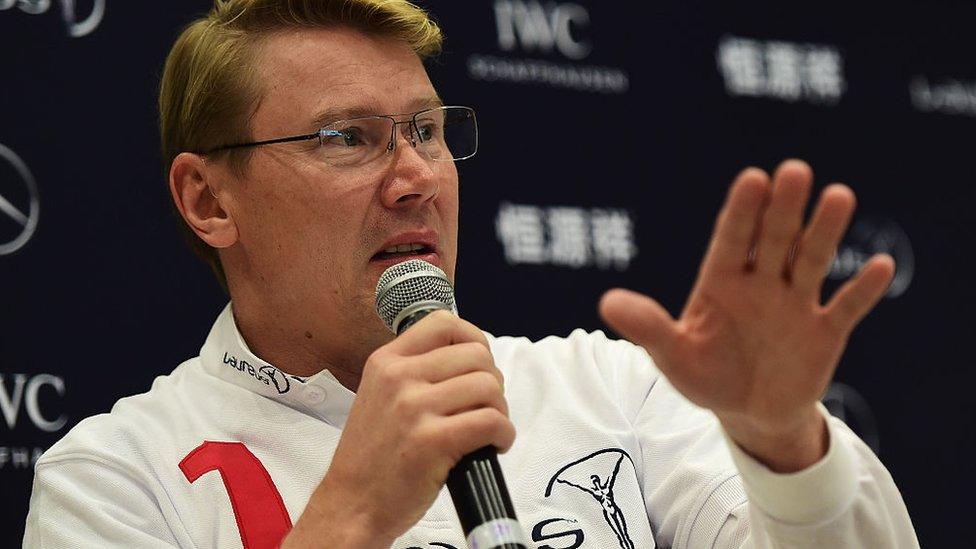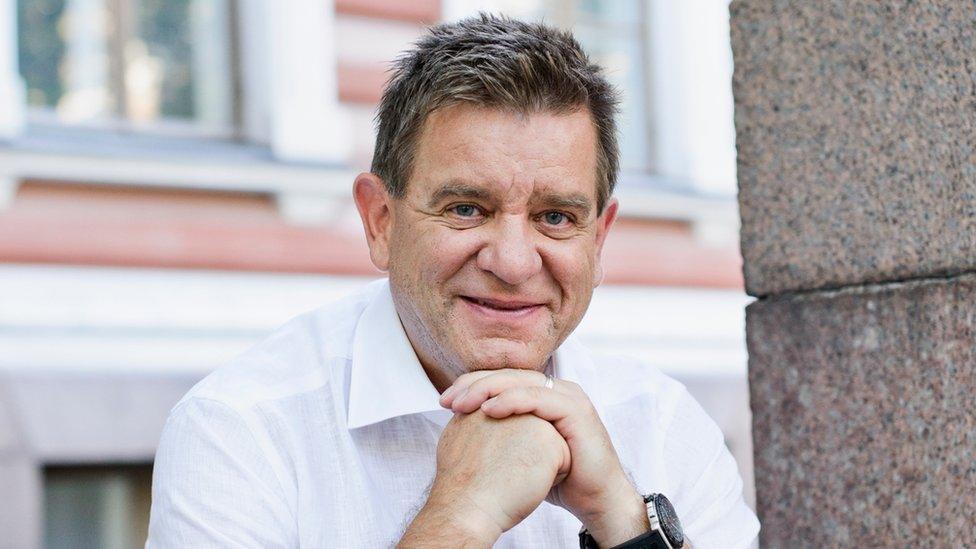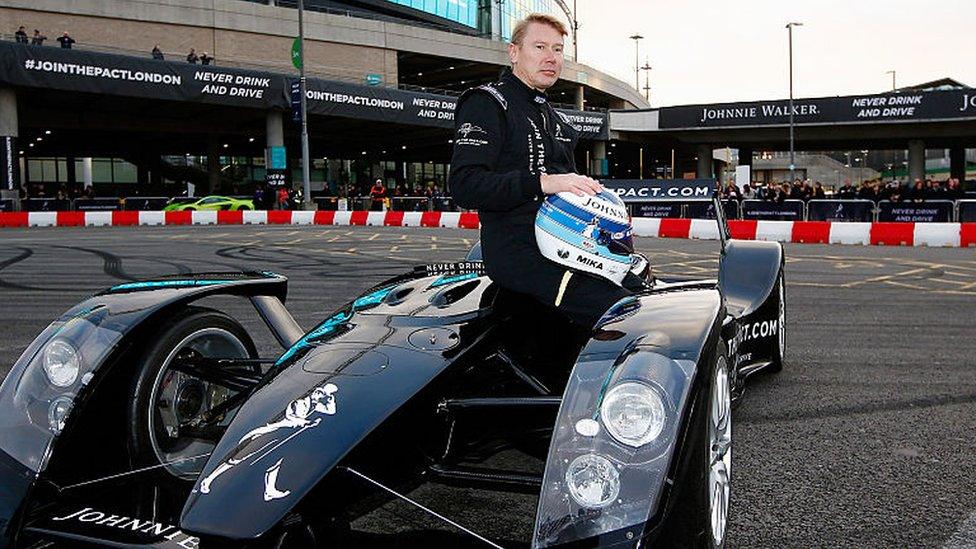Davos: What can Formula 1 teach business leaders?
- Published
Mika Hakkinen reveals tips for business success
It took Mika Hakkinen seven years on the Formula 1 circuit to win his first Grand Prix. But he desperately wanted to be champion and he knew that he was close.
"We're talking about the difference of one tenth of a second between me and Michael Schumacher," he tells me. "I knew I wasn't far off."
He went on to become a two-time champion, in 1998 and 1999, and credits his success in part to doctor and mentor, Aki Hintsa.
Without him he wouldn't have won, he says.
Mika explains that Dr Hintsa helped him sharpen his focus on the track by helping him to allay concerns he had off the track - in particular the well-being of his family, who he didn't see as much as he wanted because of all the travelling involved, as well as mentally putting behind him a severe accident he had had a few years previously.
He is telling me this at the World Economic Forum in Davos. Mika and Aki are not your typical participants at the event, which boasts 2,500 delegates, mainly consisting of business and world leaders.

Not your normal nine-to-five: Mika Hakkinen at the wheel of a supercar in Singapore in 2009

By dealing with concerns he had off the track, Mika Hakkinen says his racing improved
But finding this extra edge to achievement is what "Davos Man" (and "Davos Woman") is obsessed with.
Sleep longer
What can they do to be better than their rivals? How can they really get the most out of a single day?
In the hope of finding out, a group of them took a ski lift even further up the mountain to what is known as the "Rinerhorn base camp", to glean what wisdom they could from Mika Hakkinen, as well as four-time champion Sebastian Vettel and Dr Hintsa - who also works with current champion Lewis Hamilton.
The main message seems to be a simple one - get a good night's sleep.
Dr Hintsa scoffed at the notion that you can function at full tilt on just five hours' sleep a night. And competitive bragging about how little you need just isn't helpful, he implies.

If you're used to five hours' sleep "you're used to underperforming," says Aki Hintsa
"Operating three nights in a row on just five hours' sleep is equivalent to driving a car drunk," he adds. (You'll be pleased to hear that Sebastian Vettel aims for ten hours if he's racing.)
Mika agrees; you need to rest more than you train, he says, because you just can't improve while you're tired.
The other message is not drinking alcohol before bed, or using your smartphone or computer.
None of this seems new, but Dr Hintsa says it's surprising how few people actually implement this. He says such changes will make you function more effectively - whether you're a top level athlete or work nine-to-five in an office.
Emotional control
A trained doctor, who also spent time studying long-distance runners in Ethiopia, he now works for businesses as well as professional sports people.
According to him, there's plenty of crossover: too much travel and the pressure to act tough.

Success comes from being able to control - not suppress - your emotions
"You need to learn to control your emotions," he says, explaining that if something goes wrong, whether in a car or a business, you need to be able to control your emotions in order to deal with it.
I can't help thinking of the Fry and Laurie comedy sketch "Does it make you happy?" - where a reporter repeatedly asks a racing driver whether his win has made him happy - to which he only gets very emotionless, robotic replies about technical problems.
But the point is made that it is important to control, not suppress your emotions, and Mika points out that sometimes it can take a while to process them after winning.
Incremental improvements
What Dr Hintsa is trying to stress is that to achieve your best you need to look at all parts of your life - physical activity, sleep, nutrition, biomechanics (for this do five minutes of Pilates or stretching every morning he suggests) mental energy and general health.
He calls this the "circle of better life" - and if we commit to slightly improving these aspects daily, we will function more effectively.

You need to rest more than you train, says Mika Hakkinen
And that doesn't always mean working harder. He worked with one multinational that was going through a period of big change, and the boss's wife phoned him and thanked him because she felt she now had her husband back in her life.
But it all sounds so puritanical doesn't it? I ask Dr Hintsa,
What about letting you hair down?
To everyone's relief in the room, he says there is room to throw it all out of the window for the weekend and relax - as long as you get back to thinking about how you can improve your life.
Personally, I'd go for a good night's sleep.